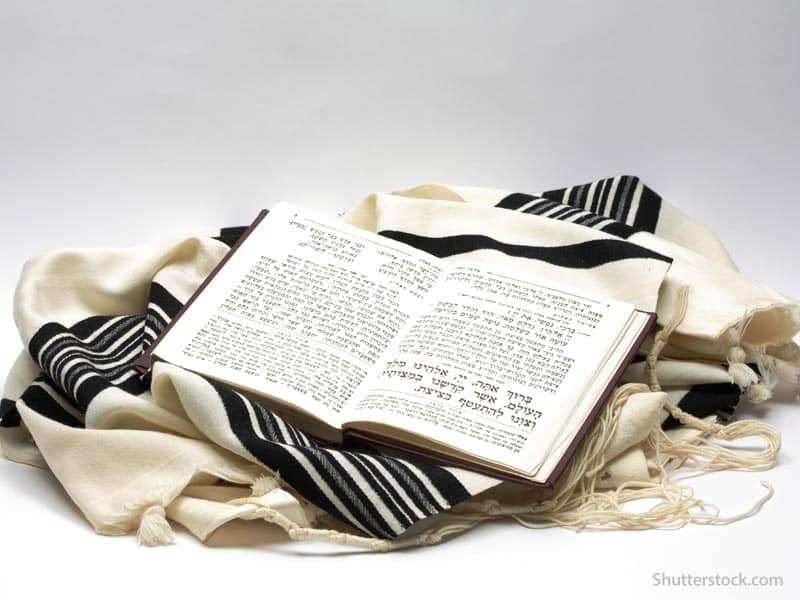Proust was Jewish, and it is likely that his ancestry sparked some of his obsession with memory. Jews are afflicted by memory, uplifted and impelled by it. To be a Jew is to dote on the past, to understand what has changed; to recognize not only what has been gained, but what has been lost.
Jewish memory teaches us that things do not remain as they were. It helps us overcome the sense of our own invulnerability, and the permanence of the world. It is an early and innocent belief of life that things do not change--that nothing will fade, or break, or die. That sentiment soon disappears; it roars out of the broken dam of our first tragedy, our first experience with what can never return. Then we remember what was, and in the act of memory is the recognition of loss.
As we grow, we become increasingly aware that life is studded by loss. Some losses are small, inconsequential. Others shake the roots of our lives.
Watching the news this week from a safe niche far from the hurricane, I saw devastating pictures of loss. The most permanent fixtures of being--homes, businesses, life itself--were torn away in an instant.
It was an inexplicable burst of tragedy. No answer can magically soothe the scars of desolation. Nonetheless, Judaism, with its insistence on memory, provides some context for such a horrible event.
At the Yizkor service on Yom Kippur we mourn the impermanence of life. We speak about the brief years we are granted on earth, how all of our accomplishments are rooted in time. Inevitably, we scan the synagogue for those who worshipped with us last year who are now gone.
Reinforcing the theme of impermanence, Yom Kippur is followed by Sukkot. On Sukkot, we read the book of Ecclesiastes, with its insistence on the brevity and evanescence of all things. During that week, we also we dwell in a sukkah, a flimsy hut that temporarily serves as a home.
Our tradition teaches transience. Do not think that steel and stone will last forever. Loss is ingrained in life. There is a time for everything, the author of Ecclesiastes assures us, which means that there is another time when that thing will be no more.
Yet this teaching of transience is not so that we will be left with despair. It encourages us to search for that which is permanent. The sukkah may be temporary, but the memory of building it has lasted for 3,000 years. Even if individuals forget, the community remembers. And that memory lingers even when more palpable symbols of achievement in this world are gone.
The teaching of Judaism is that while the world changes, there is permanence. There is continuity in memory, in connections between people, in God. Although much in this world might be lost, it is reclaimed through recollection.
Part of the understanding to be wrested from any tragedy is that everything has not been rendered meaningless by loss. Even something so fixed and durable as a home is not ultimately what lasts. The abidingness of life is found in others, and in God. This Yizkor there will be much to mourn for many who have lived through this terrible tragedy. Nothing can obliterate the horrible pain, the sense of life's work having been swept away, the helplessness and violation.
Yet Judaism adjures us to remember that which lasts. It is in our power to ensure that no storm can blow away memory, and no floods wash away faith.
Such faith does not avoid the question of why. Why, when we have worked so hard, does God strip away what we have built? Why do our loved ones suffer despite their goodness?
The classical answers--that there is ultimate reward or that this is a necessary test, or that nature and not God's finger is pointing at us--all have their measure of comfort, but in moments of pain they can feel like a mockery, not an honest response. Perhaps random suffering is necessary for a world of goodness: How could we be truly good unless we knew that our goodness was disinterested--that is, we are good for its own sake, not so we will be rewarded? If every good person were rewarded and ever evil one punished, the world would be full of people acting in a good way, but not because they cared about goodness, but because they feared punishment.
In the end, the answer of faith is that somehow suffering serves, that it answers to some purpose. It awakens morality, or responsibility, or goodness. This does not dull the pain, or make the suffering worthwhile. Rabbi Levi Yitzhak called out to God, "I do not care that I suffer so long as I know that I suffer for your sake." But this too is hardly a full comfort; we would still wish the lessons without the lash.
Perhaps the only ultimate religious response is not "why" but "what." That is, not why did this happen, but what must we do. We cannot know why God caused us to suffer, but we do know that God wishes us to respond with compassion, with help, with love.
Those of us who only watched the devastation must remember the vivid images of lives upended, dreams shattered, homes and hearts swept up in the storm. Those who lived through it have the far harder task of clinging to what does last: to memory, to hope, to each other, to God. From the rest of us, in the immemorial words of our tradition, chazak, chazak v'titchazek: Stay strong, and may you be strengthened.

